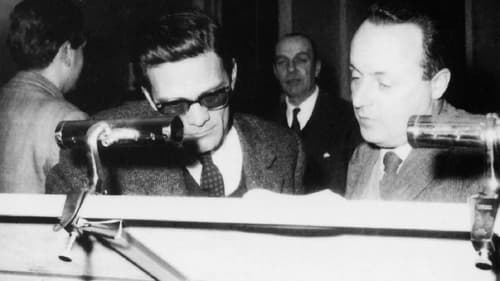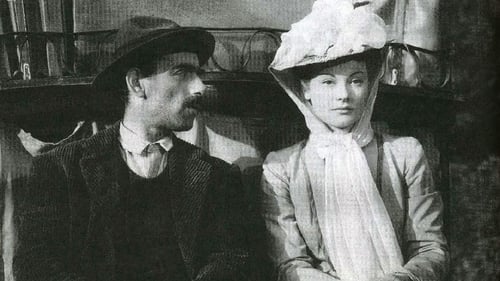
Editor
An Italian mondo documentary about Finland. Among other things, it showcases intricacies of local mating culture, sports, Midsummer festivities and sauna.

Editor
"Andremo in città" (We'll Go to the City) is a 1966 Italian drama film directed by Nelo Risi. It is based on the novel of the same name by Edith Bruck, Risi's wife. Bruck, a Hungarian concentration camp-survivor, settled in Italy after the Second World War and wrote about her experiences in autobiographical and fictional formats.[1] The film stars Geraldine Chaplin and Nino Castelnuovo.

Assistant Director
Documentary footage (from the 1950s) and accompanying commentary to attempt to answer the existential question, Why are our lives characterized by discontent, anguish, and fear? The film is in two completely separate parts, and the directors of these respective sections, left-wing Pier Paolo Pasolini and conservative Giovanni Guareschi, offer the viewer contrasting analyses of and prescriptions for modern society. Part I, by Pasolini, is a denunciation of the offenses of Western culture, particularly those against colonized Africa. It is at the same time a chronicle of the liberation and independence of the former African colonies, portraying these peoples as the new protagonists of the world stage, holding up Marxism as their "salvation", and suggesting that their "innocent ferocity" will be the new religion of the era. Guareschi's part, by contrast, constitutes a defense of Western civilization and a word of hope, couched in traditional Christian terms, for man's future.

Editor
Documentary footage (from the 1950s) and accompanying commentary to attempt to answer the existential question, Why are our lives characterized by discontent, anguish, and fear? The film is in two completely separate parts, and the directors of these respective sections, left-wing Pier Paolo Pasolini and conservative Giovanni Guareschi, offer the viewer contrasting analyses of and prescriptions for modern society. Part I, by Pasolini, is a denunciation of the offenses of Western culture, particularly those against colonized Africa. It is at the same time a chronicle of the liberation and independence of the former African colonies, portraying these peoples as the new protagonists of the world stage, holding up Marxism as their "salvation", and suggesting that their "innocent ferocity" will be the new religion of the era. Guareschi's part, by contrast, constitutes a defense of Western civilization and a word of hope, couched in traditional Christian terms, for man's future.

Editor
In the late 1500s, forces of the Duke of Malaga topple the Sacred Obelisk in the North African city of Melida before they're defeated by the local Sheik. The Shiek's men then sail to Spain and kidnap the Duke's daughter, Isabella.

Director
Two teenagers are late for school so they decide to spend the day together.

Director

Executive Producer

Screenplay

Director

Line Producer
Turi, having returned to Sicily from abroad, learns that his sister Maruzza is the lover of Cosimo Barrese, a militant of the Movement for the Independence of Sicily, who, abandoned by everyone, has become a bandit. The two would like to get married, but life as an outlaw seems an insurmountable obstacle. Turi asks for revenge on the bandit who has dishonored the family and uses a shady and devious lawyer to drive him into a trap.

Editor
The noble Pantaleo Di Santa Paola has just died, and the preamble to his will is a confession in which he claims that in his youth he had a relationship with a circus rider that produced twin sons.

Editor
After several unsuccessful suicide attempts, Totò finds himself in an animal asylum.

Production Manager

Editor
In his first feature, great Italian clown Totò plays a carefree tramp moving from job to job, in order to provide for himself and his young Shirley Temple-like protégée.

First Assistant Director
In his first feature, great Italian clown Totò plays a carefree tramp moving from job to job, in order to provide for himself and his young Shirley Temple-like protégée.

Editor

Editor
The story is the harried attempt of a Sicilian partisan, as part of the risorgimento, to reach Garibaldi's headquarters in Northern Italy, and to petition the revered revolutionary to rescue part of his besieged land. Along the way, the peasant hero encounters many colorful Italians, differing in class and age, and holding political opinions of every type. There is a key train scene, and the film ends on the battlefield, Italian unification a success, despite brutal losses.









